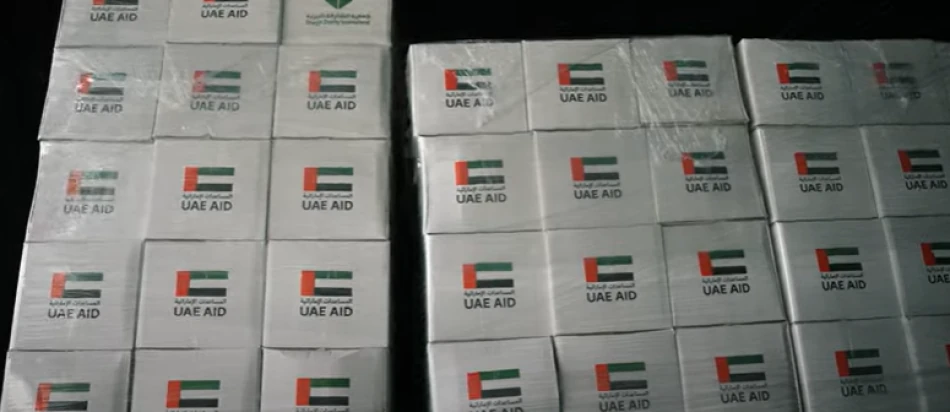
UAE Rushes Emergency Aid to Afghanistan Amid Humanitarian Crisis
UAE Mobilizes Major Relief Operation as Afghanistan Reels from Eastern Earthquake
The United Arab Emirates is launching a large-scale humanitarian mission to Afghanistan following a devastating earthquake in the country's eastern regions, with thousands of tons of food, shelter materials, and medical supplies being loaded onto relief vessels. The operation, directed by President Sheikh Mohammed bin Zayed Al Nahyan, underscores the UAE's growing role as a regional humanitarian hub despite Afghanistan's complex political landscape.
Swift Response Reflects Strategic Humanitarian Positioning
The UAE's Joint Operations Command at the Ministry of Defense is coordinating the relief effort at an accelerated pace, working alongside multiple charitable and humanitarian organizations across the Emirates. This multi-institutional approach demonstrates the country's systematic approach to disaster response, leveraging both government resources and private sector capabilities.
The speed of the UAE's response is particularly notable given Afghanistan's challenging geopolitical situation since the Taliban's return to power in 2021. While many Western nations have maintained limited engagement with Afghanistan's current leadership, the UAE has positioned itself as a pragmatic intermediary, focusing on humanitarian needs over political considerations.
Regional Leadership in Crisis Response
Building on Established Humanitarian Infrastructure
This latest relief operation builds on the UAE's established track record as a regional humanitarian hub. The country has consistently ranked among the world's top donors relative to GDP, and Dubai has become a critical logistics center for international aid operations across South Asia and Africa.
The UAE's approach differs markedly from traditional Western aid models. Rather than working through international organizations like the UN or Red Cross, the Emirates often deploys direct government-to-people assistance, which can be more efficient but also more politically sensitive in complex environments like Afghanistan.
Strategic Implications for Regional Influence
The humanitarian mission serves multiple strategic purposes beyond immediate disaster relief. It reinforces the UAE's soft power projection across the region and maintains important channels of communication with Afghanistan's leadership. This approach mirrors similar strategies employed by Turkey and Qatar, both of which have used humanitarian assistance to maintain influence in politically isolated territories.
For Afghanistan, the UAE's assistance comes at a critical time when the country faces severe economic constraints and limited international recognition. The earthquake relief could help strengthen bilateral ties that may prove valuable for future economic and diplomatic engagement.
Broader Context of Afghanistan's Humanitarian Crisis
The earthquake compounds Afghanistan's existing humanitarian challenges, which have intensified since international sanctions and aid restrictions followed the Taliban's takeover. The country's healthcare system remains severely underfunded, and food insecurity affects millions of Afghans.
The UAE's willingness to provide direct assistance highlights the practical challenges facing the international community's approach to Afghanistan. While maintaining political pressure on the Taliban government, countries like the UAE recognize that humanitarian isolation primarily harms ordinary Afghans rather than changing political behavior.
This relief operation reinforces the UAE's position as a key player in regional crisis management, demonstrating how middle powers can fill humanitarian gaps when major powers are constrained by political considerations. The success of this mission could establish a template for future UAE engagement in complex humanitarian situations across the region.
Most Viewed News

 Sara Khaled
Sara Khaled






